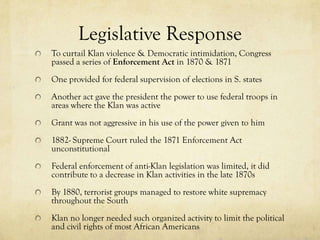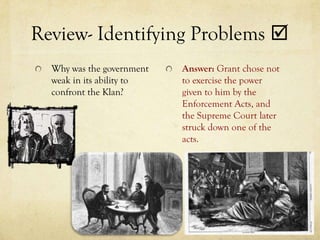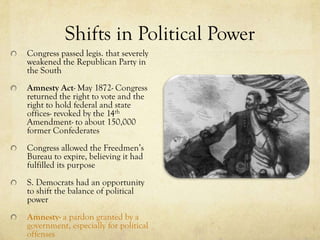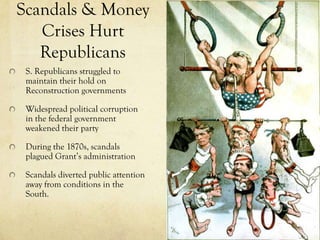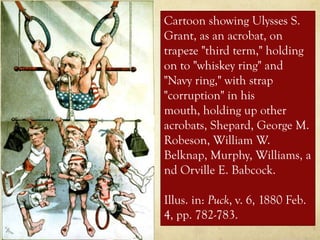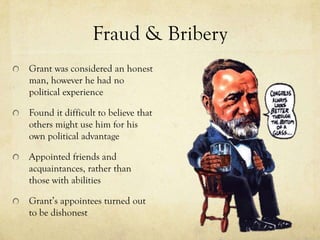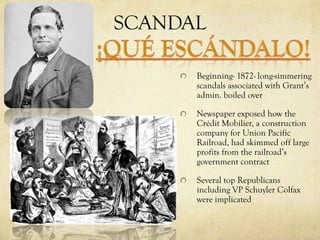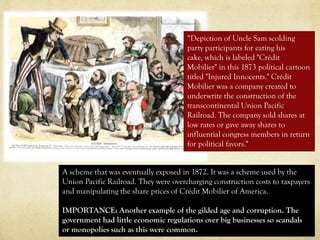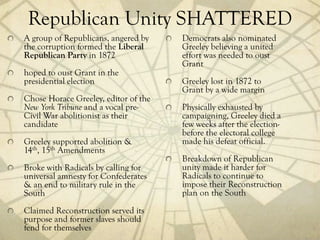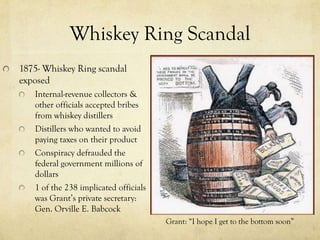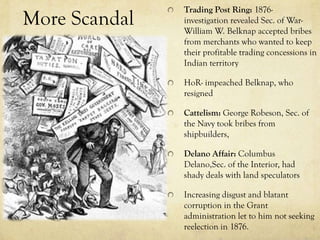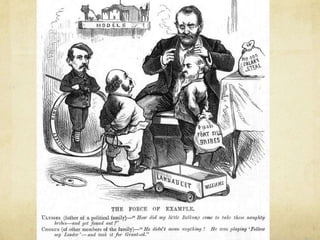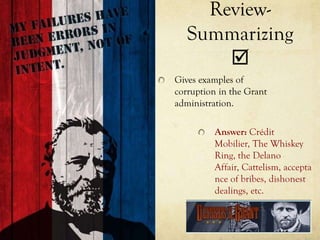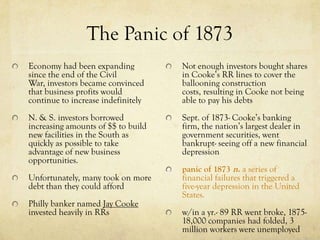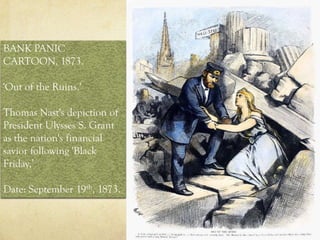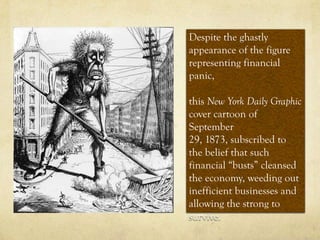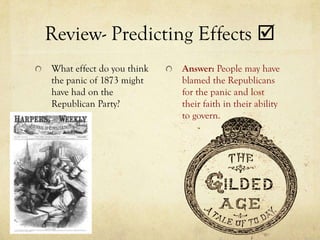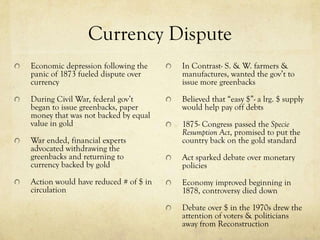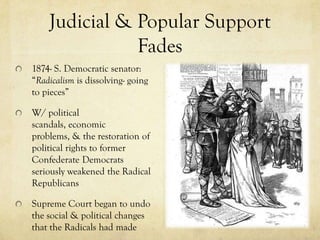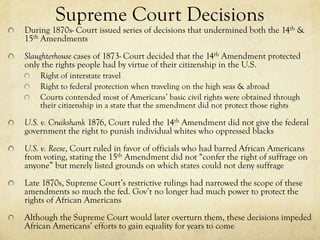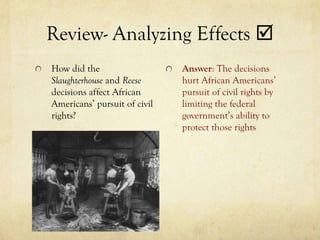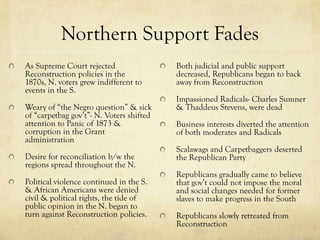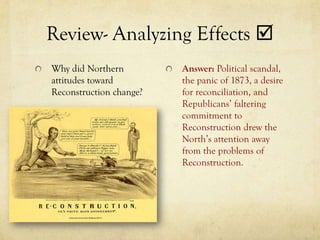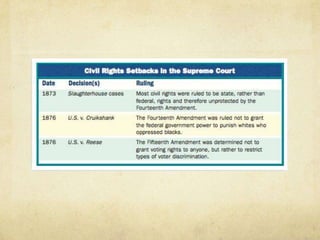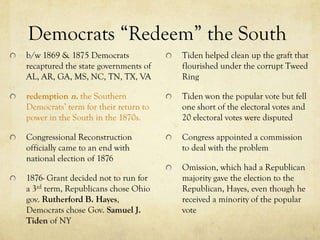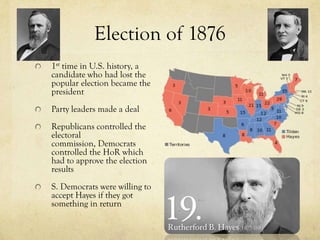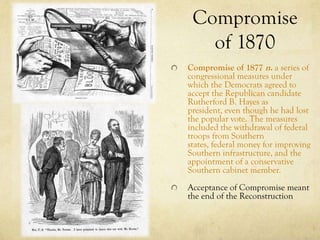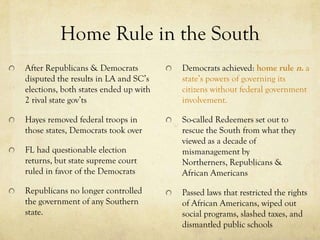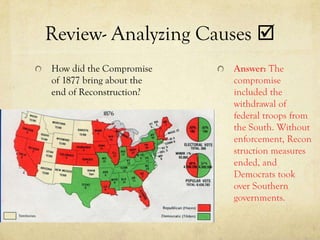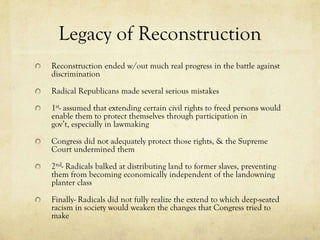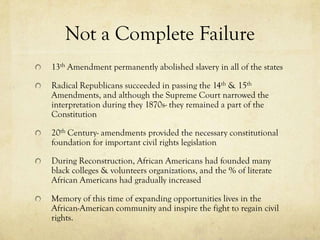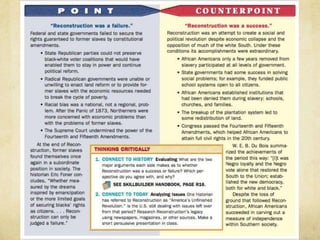The Reconstruction Act of 1867 divided the Southern states into military districts headed by Union generals. It required the states to grant voting rights to African American men and ratify the 14th Amendment in order to be readmitted to the Union. Johnson vetoed the act but Congress overrode his veto. This set up a conflict between Johnson and the Radical Republicans that led to his impeachment for violating the Tenure of Office Act, though he was acquitted by one vote in the Senate trial. The election of 1868 was won by Ulysses S. Grant, signaling Republican control over Reconstruction.
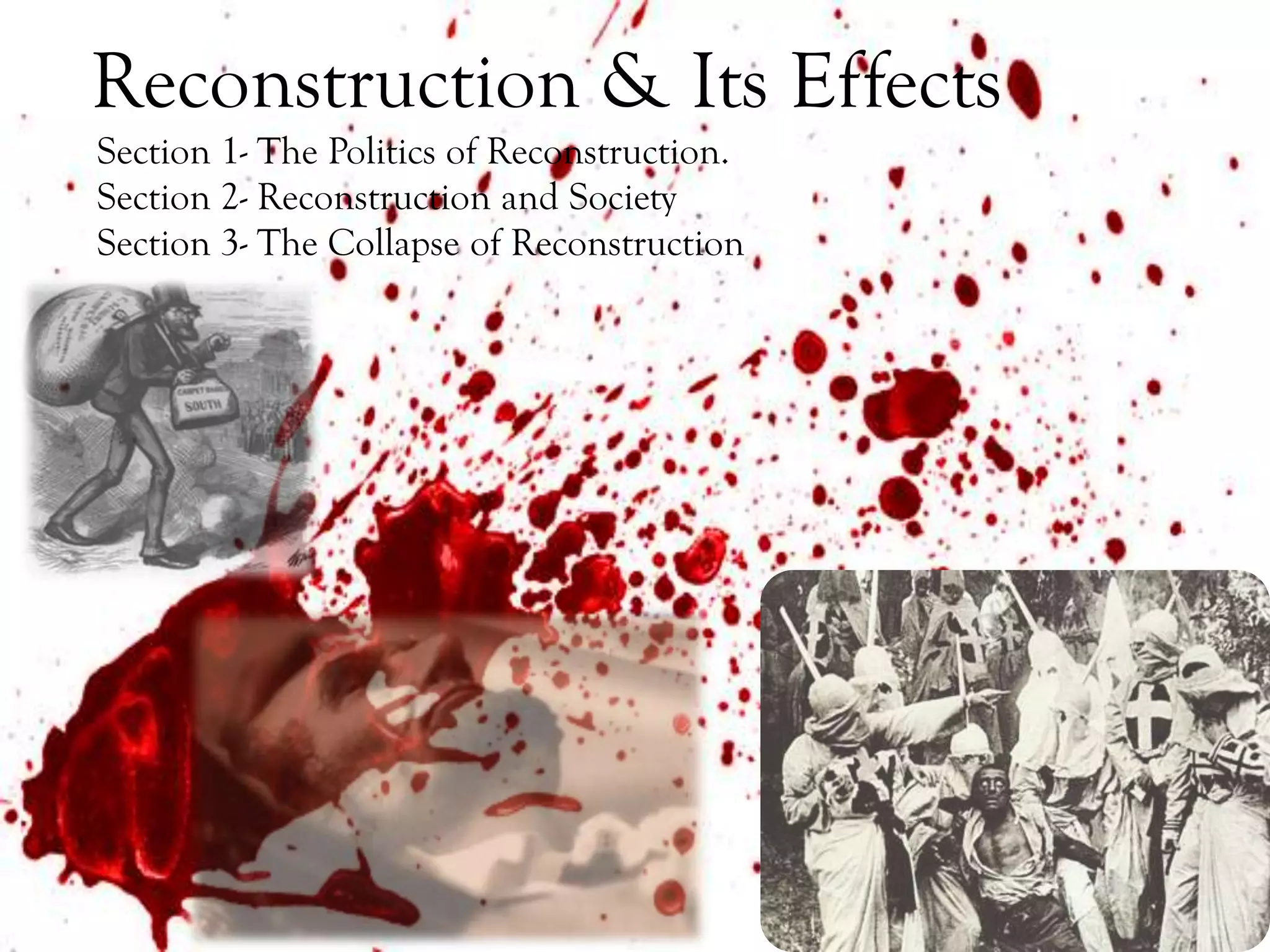
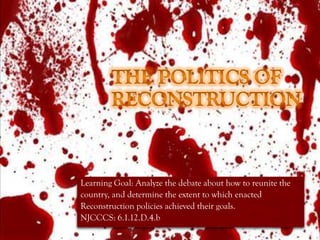
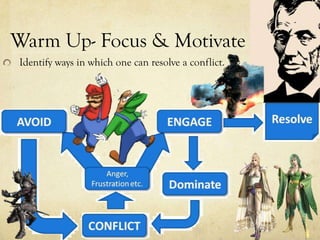
![Andrew Johnson
Succeeded Lincoln as President As president: Johnson faced
a dilemma:
Former congressman, governor, and Pardon or punish
senator former Confederates
Only senator from a Confederate state How to bring the
[TN] to remain loyal to the Union defeated Confederate
states back into the
Former slave-owner, by 1863- Union
supported abolition
Hated wealthy s. planters, held them
responsible for dragging poor whites
into the war
1865- endorsed harsh punishment for
Confederate leaders](https://image.slidesharecdn.com/7-2reconstructionanditseffects1865-1877-130131203556-phpapp02/85/7-2-reconstruction-and-its-effects-1865-1877-4-320.jpg)
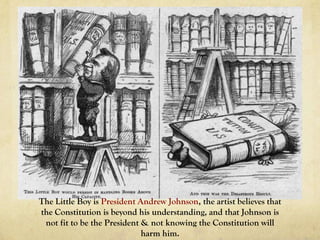
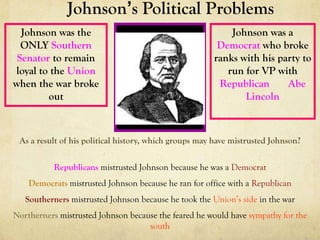
![Plan for Reconstruction
Reconstruction- [1865-1877] n. the
period of rebuilding that followed the
Civil War, during which the defeated
Confederate states were readmitted to
the Union.
Complications quickly arose as
Lincoln, Andrew Johnson, Congress
had differing ideas on how
Reconstruction should be handled.
Before Lincoln’s death, he made it clear
that he favored a lenient
Reconstruction policy](https://image.slidesharecdn.com/7-2reconstructionanditseffects1865-1877-130131203556-phpapp02/85/7-2-reconstruction-and-its-effects-1865-1877-7-320.jpg)
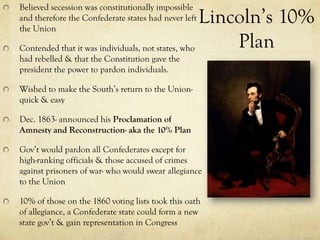
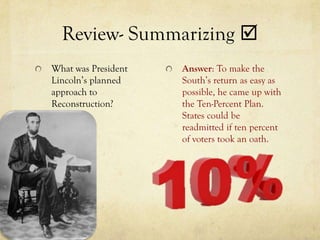
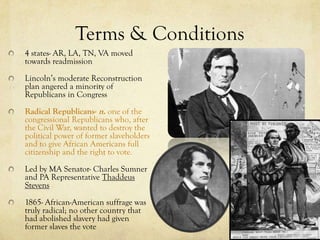
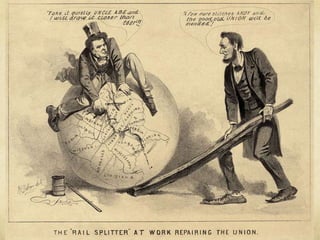
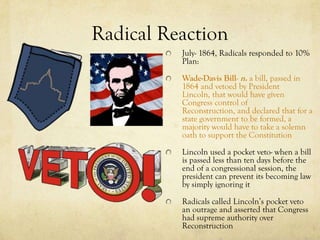
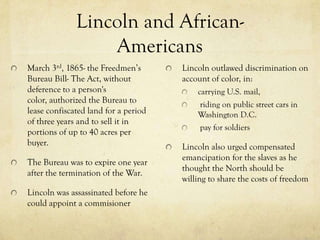
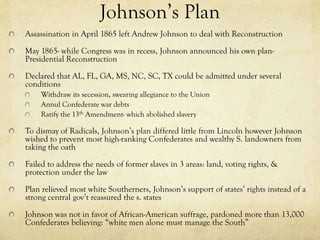
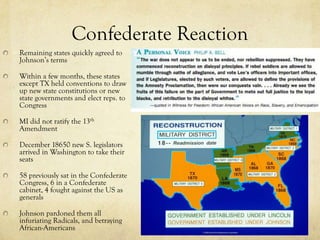
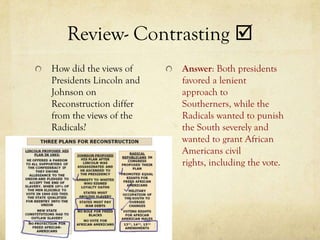
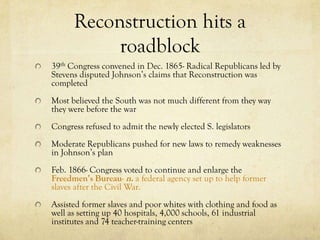
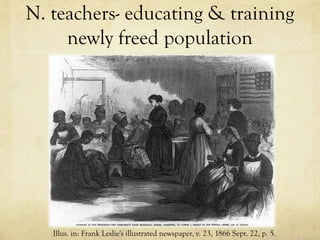
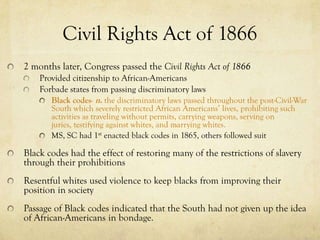
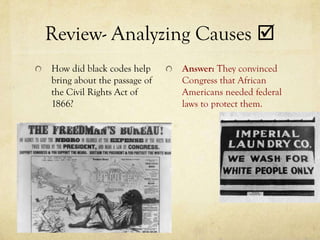
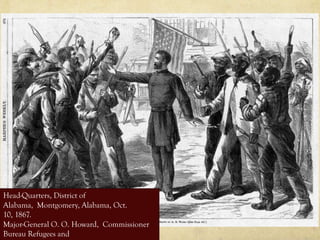
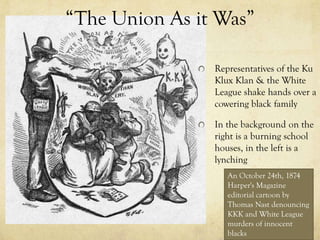
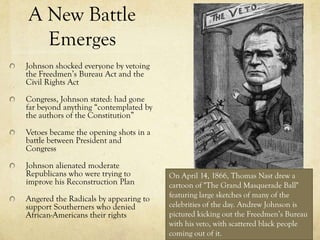
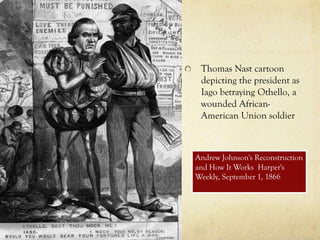
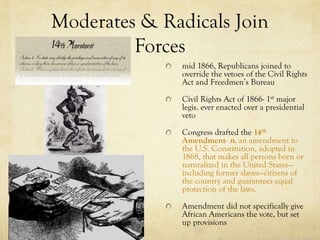
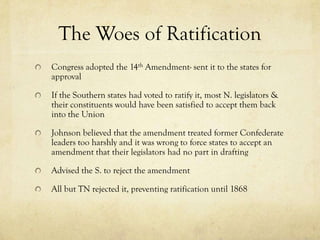
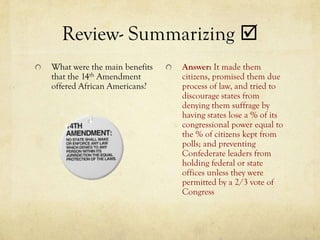
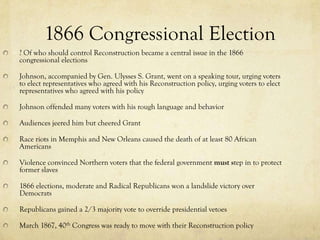
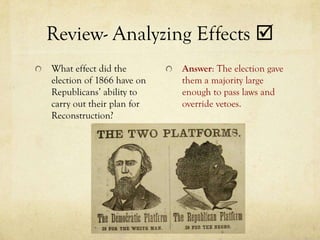
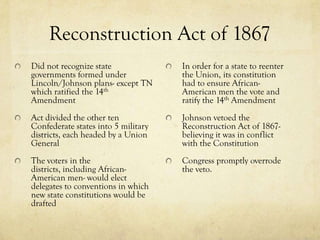
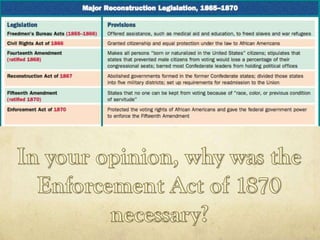
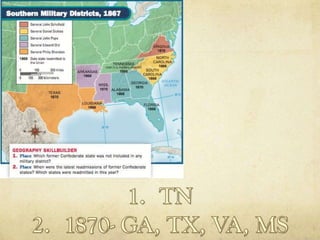
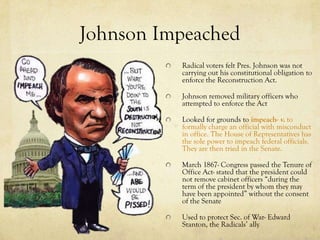
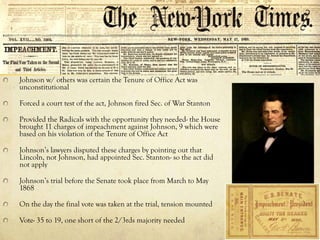
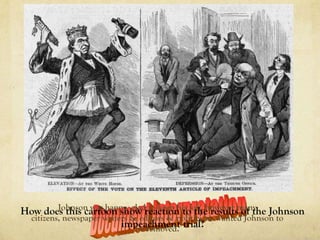
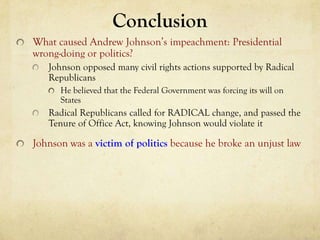
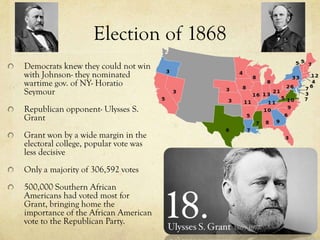
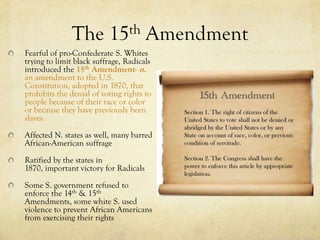
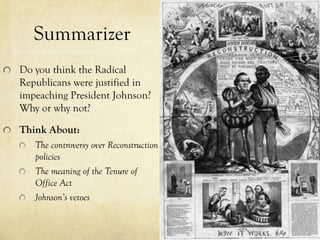
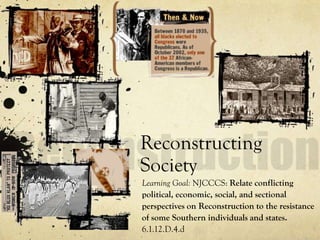
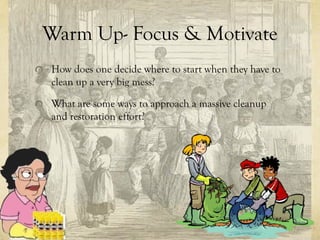
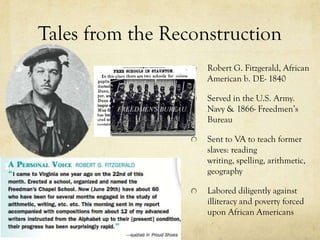
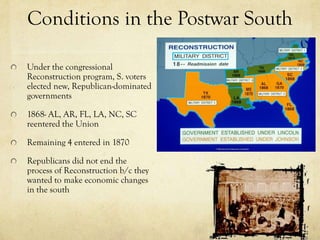
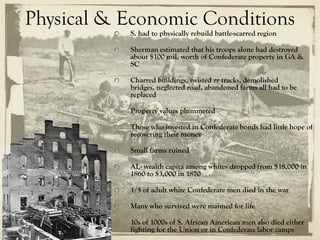
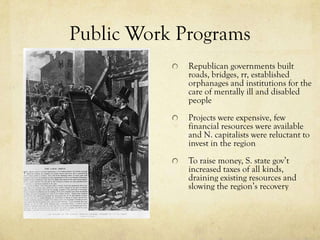
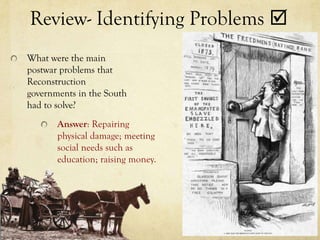
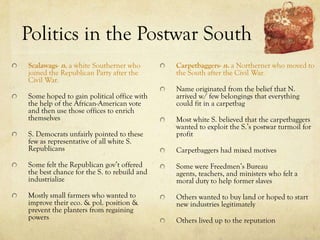
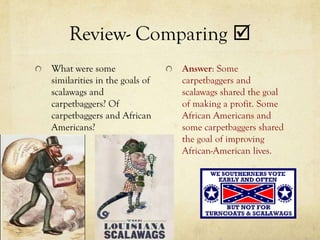
![★Unwelcome Guest- 1872★
Thomas Nast [1840-1902] Cartoon
from a S. Democratic newspaper
depicts Carl Shurz, a liberal
Republican who advocated legal
equality for African Americans.
Shurz is shown as a carpetbagger
trudging down a dusty S. road as a
crowd of people watch his arrival.
1. Is Shurz shown in a positive or
negative light? How can you tell?
2. Why do you think the
cartoonist portrays the S. people
standing in a group, far away from
Shurz?](https://image.slidesharecdn.com/7-2reconstructionanditseffects1865-1877-130131203556-phpapp02/85/7-2-reconstruction-and-its-effects-1865-1877-49-320.jpg)
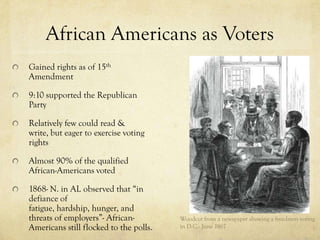
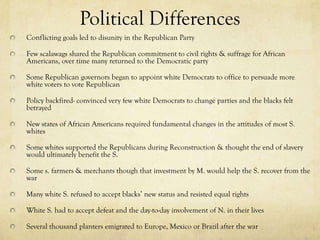
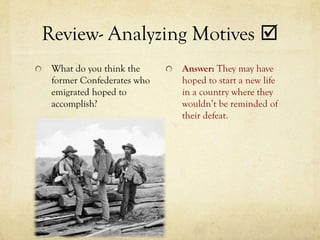
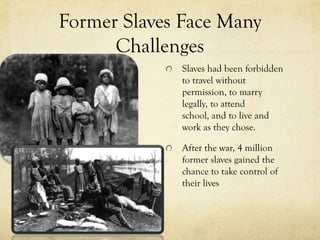
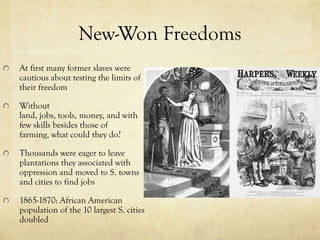
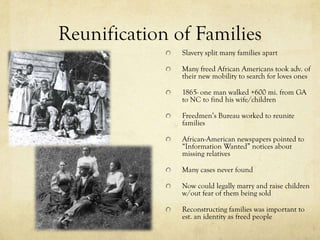
![Education
Nearly 80% of freed African Americans over 20 were
illiterate in 1870 [due to being punished if they tried to
learn]
Freed people of all ages sought education
African Americans est. educational inst. Inc.
Freedmen’s Bureau and African-American churches
Hampton Institute in VA
1870- $1mil. spent of Edu.
Teachers were N whites, however some blacks became
teachers- 1869- black teachers outnumbered whites
Some white S. responded with violence- i.e.
Washington Eager, murdered b/c he could read &
write
1877- 600,000 were enrolled in elementary schools](https://image.slidesharecdn.com/7-2reconstructionanditseffects1865-1877-130131203556-phpapp02/85/7-2-reconstruction-and-its-effects-1865-1877-56-320.jpg)
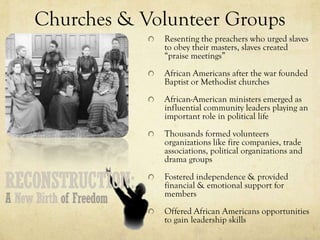
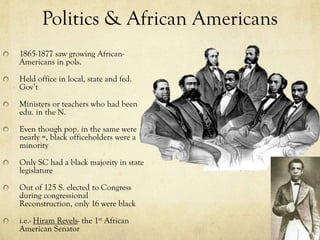
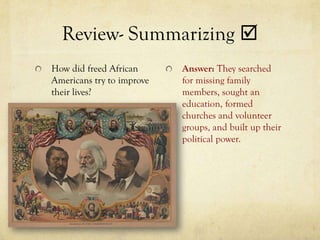
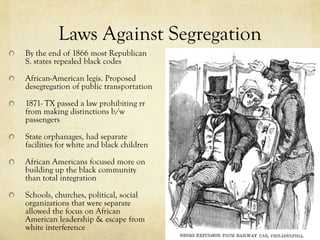
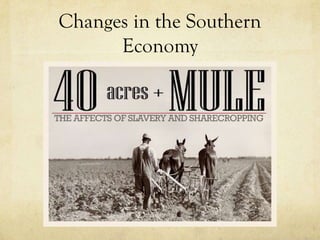
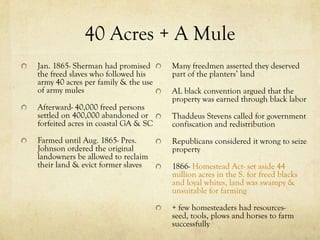
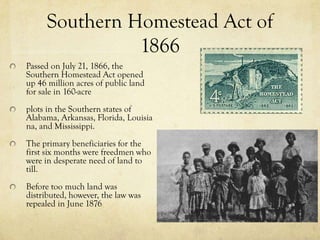
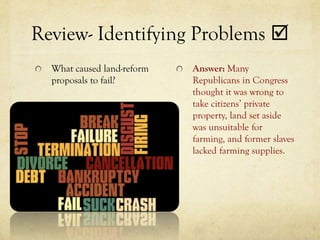
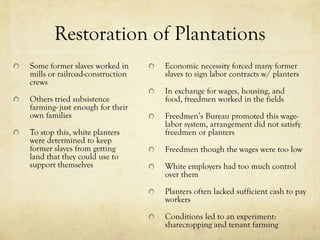
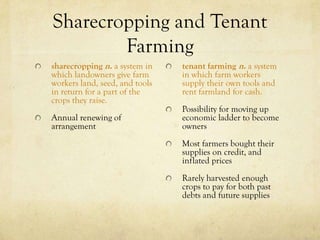
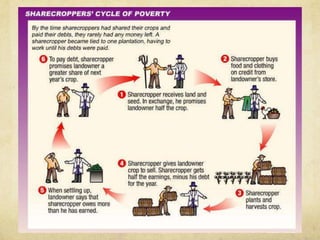
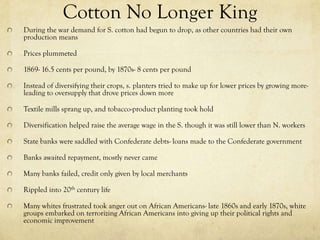
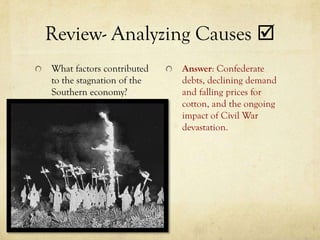
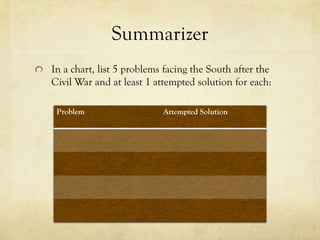
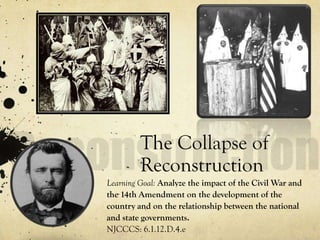
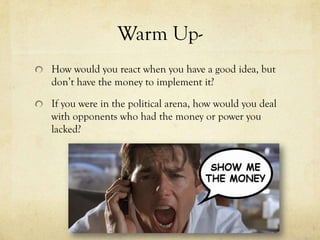
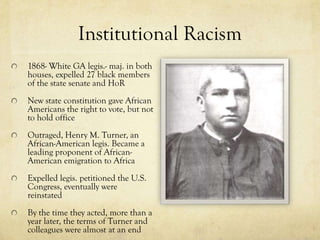
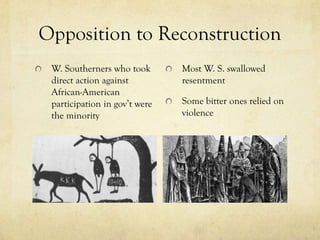
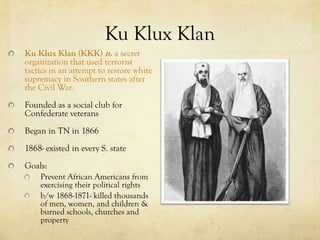
![Klan Victims & Goals
Majority of Klan victims were
African-American, Whites who
helped [edu., renting land, buying
their crops]
Klan obj: turn the Republicans out
of power
NC state senator, John Stephens-
answered warning that his life was
in danger by saying that 3,000
African American voters had
supported him at the risk “of
persecution and starvation” and
that he would not abandon them.
Stephens was assassinated in 1870.](https://image.slidesharecdn.com/7-2reconstructionanditseffects1865-1877-130131203556-phpapp02/85/7-2-reconstruction-and-its-effects-1865-1877-76-320.jpg)
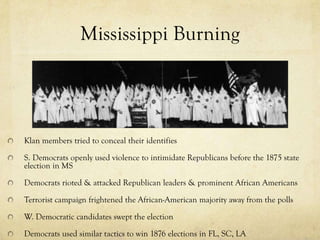
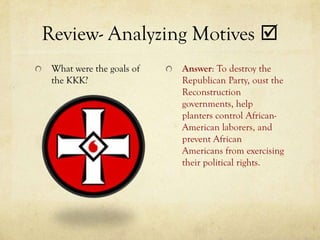
![Economic Pressure
Klan & other secret groups tried to
prevent African Americans from
making economic [& political]
progress
African Americans who owned their
own land or worked in occupations
other than agriculture were subject
to attacks & destruction or property
Economic necessity forced most
former slaves to work for whites as
wage laborers or share-croppers
Some W. S. refused to hired or do
business with blacks revealed to have
voted Republican
This fear led to many former slaves
refusing to vote](https://image.slidesharecdn.com/7-2reconstructionanditseffects1865-1877-130131203556-phpapp02/85/7-2-reconstruction-and-its-effects-1865-1877-79-320.jpg)
